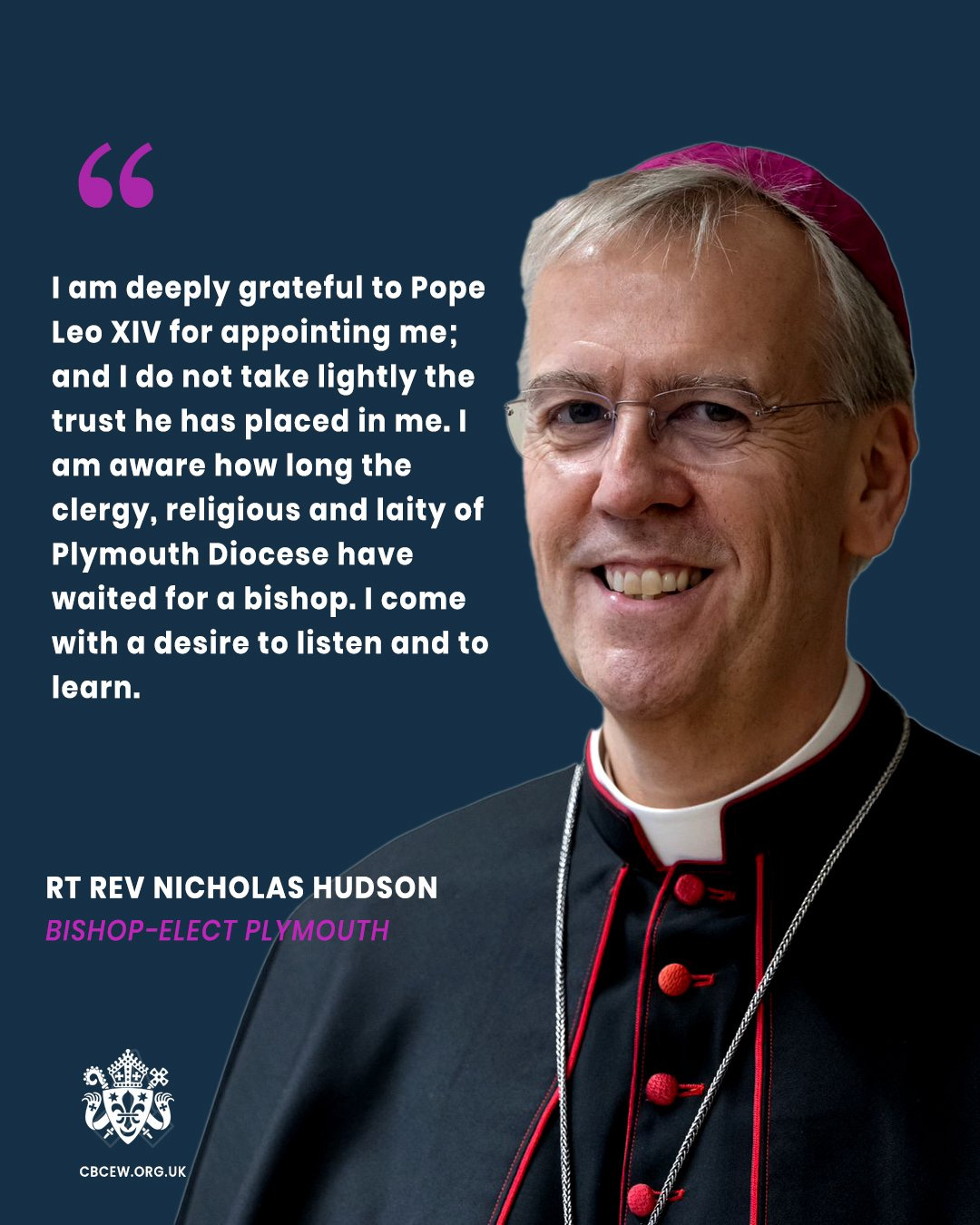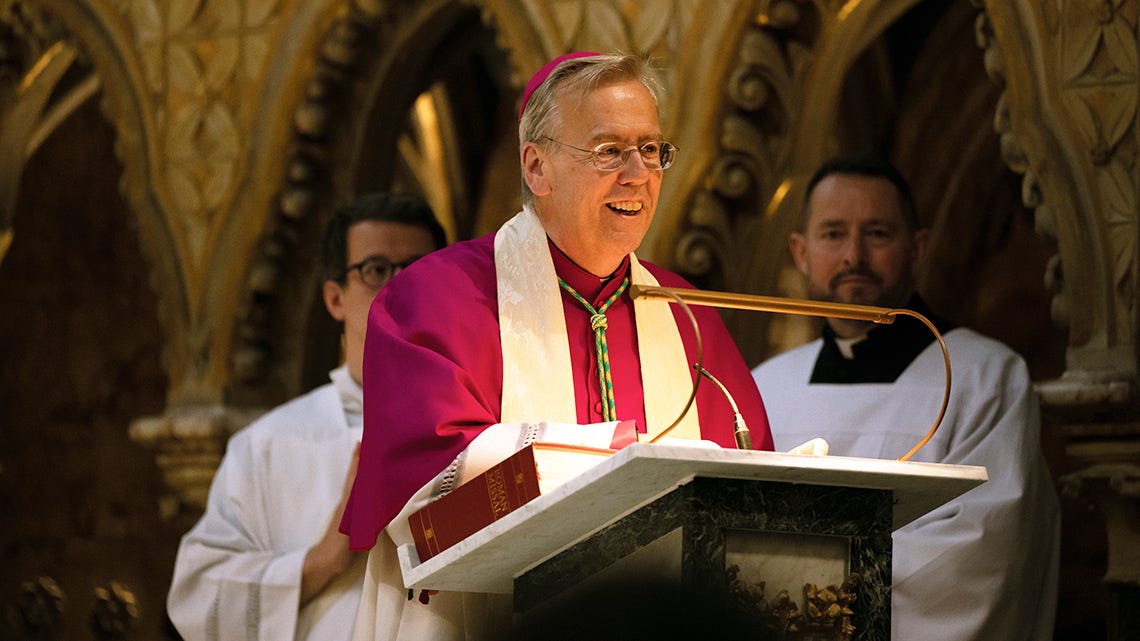Finally! Plymouth has a Bishop.
Nicholas Hudson appointed from auxiliary of Westminster
Bishop Nicholas Hudson’s translation from auxiliary in Westminster to diocesan bishop in Plymouth is one of those ecclesiastical moves that looks tidy on paper but carries a great deal of quiet meaning. Rome has taken a man formed at Cambridge and the Gregorian, a former rector of the Venerable English College, and posted him not to a major metropolitan see but to the West Country to fill a chair left awkwardly vacant after Philip Moger, twice delayed and then finally withdrawn, excused himself on grounds of unspecified personal necessity. Hudson arrives not as a breakout personality but as a representative of the current papal tone: a safe promoter of synodality, thoroughly house-trained in Francis-era ecclesial dialect, fluent in all the right words about listening, process and accompaniment, and notable chiefly for having expressed almost nothing sharp or definite on matters where definition is uncomfortable.
His background is impeccable in the standard post-Council cursus: Jesuit school, Cambridge history degree, Roman theology, diocesan catechetics, a long spell in priestly formation, parish work in Wimbledon, and a decade as auxiliary in London with oversight of youth, evangelisation and justice-and-peace portfolios. He has emerged in the last five years as an enthusiastic exponent of synodality, leading reflections and drafting “take-outs” to help the faithful digest the synod’s final texts. One hears him speak at length on walking together, on the beauty of dialogue, on the discovery of the Holy Spirit through patient listening. One notices, too, what one does not hear. He has never been known to raise his voice in defence of anything concrete which the age finds difficult: not the Traditional Latin Mass, not doctrinal clarity in contested zones of moral theology, not even a definable programme for reform beyond the word reform itself. He is not a dissenter, not a provocateur, not a heretic, not a champion. He is, to borrow the austere language of the Apocalypse, neither cold nor hot.
This is not to deny the man’s real gifts. He is intelligent, sociable, unthreatening, one might even say likeable, if you like that bland sort of thing, and in an era suspicious of clerical force he is temperamentally reassuring. Where an iron hand would provoke revolt, Hudson arrives padded and well-mannered. Plymouth may find in him a man who will convene, consult and compose rather than command. Whether such gentility can rekindle a diocese that has endured a year of anticlimax after the Moger affair is another question. Uncertainty has created an opening; it is unclear whether Hudson has the capacity or even the appetite to fill it with anything more decisive than facilitation.
The move has, at least, sent a ripple of relief through Westminster. With Cardinal Nichols turning eighty the succession question has been humming. Many had imagined that Hudson, already in situ, might be lifted the final step and inherit the premier see in England. For those anxious about another synodal bureaucrat in a red hat, the diversion to Plymouth removes him from the short-list, leaving the field to Paul Mason, John Wilson and Mark O’Toole. That fact alone has been greeted in some quarters as a quiet deliverance.
In the end, this appointment tells us something about the present moment in the English Church. Rome has signalled that Hudson is to have a diocese, but not the diocese. He is trusted to administer and to listen, but not yet trusted to set the tone for the nation’s capital. He is promoted without being anointed as a leader of consequence. For a bishop whose public record consists largely of warm words arranged without sharp edges, this is in its way apt. The Church has sent to Plymouth a man of process rather than proposition, a living parable of the age’s preference for the tepid middle: not scandalous, not heroic, not false, not bracingly true, but pleasantly, persistently inoffensive. Whether that is a path to renewal or a gentle glide into further mediocrity is now, for Plymouth, not a theoretical but a lived question.





Preach the word; be ready in season and out of season; reprove, rebuke, and exhort, with complete patience and teaching. (2 Timothy 4:2, ESV-CE)
O Lord have mercy on us all
If Plymouth and surrounding harbors are entry ports for illegal immigration, they have their man to help the invasion, er process …